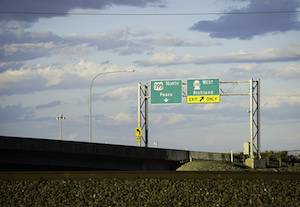KEEP YOUR PROPERTY.
Medical Bills in Richland, Washington

Medical bills can be overwhelming no matter the circumstances, but even more so when an unexpected health event occurs and leaves you with mountains of expenses. In Richland, Washington, as in the rest of beautiful Benton County, the legal implications surrounding medical debt can vary. This is why knowing your rights is important.
The Impact of Medical Debt in RichlandRichland is home to a diverse population, many of whom face the challenge of high medical costs. Medical bills, whether because of long-term health conditions or emergencies, can quickly become overwhelming. In many cases, you may find yourself wondering how you will pay off your debts while still trying to maintain some financial stability.
Healthcare providers, insurance companies, and government programs in Washington state all work inside of a complicated web that leaves patients feeling unsure at times of their financial responsibilities. From emergency room and urgent care visits to prescribed medications, the costs can start adding up. Additionally, you may even face higher out-of-pocket expenses if you’re uninsured or underinsured, leaving you with a huge financial burden.
The Legal Framework for Medical Debt in Richland, WashingtonIn Washington, residents of Richland and Benton County are governed by both state and federal laws when it comes to medical debt. It's important to understand how these laws protect you and what your rights are in the face of mounting medical bills.
Washington State Collection LawsWashington state law, under the Washington Collection Agency Act (RCW 19.16), prohibits certain practices by debt collectors, including the following:
- Harassment: Debt collectors cannot harass or intimidate you into paying medical debt. This includes using foul or abusive language, threatening actions, or contacting you at unreasonable hours.
- Garnishment: If a creditor obtains a judgment against you, they can garnish your wages. However, Washington has limitations on the amount that can be garnished. There are also certain exemptions, such as a portion of your wages being protected if they are below a certain threshold.
- Exempt Property: Washington also has exemptions for certain types of property that can’t be seized to pay medical bills, such as basic household goods, a vehicle up to a certain value, and certain retirement accounts.
In Washington, certain property may be exempt from being seized to pay off medical bills through garnishment:
- Personal Property Exemptions: Household goods, furniture, clothing, and tools necessary for your trade or profession are protected under Washington state law (RCW 6.15.010).
- Motor Vehicle Exemptions: A motor vehicle up to a certain value is also protected under RCW 6.15.010. This means the creditor can’t seize your vehicle to satisfy a judgment against you.
If a creditor or collection agency sues you over unpaid medical bills and wins a judgment in Benton County Court, they may attempt to garnish your wages. However, Washington state limits how much can be garnished from your paycheck.
- Wage garnishment limit: Under RCW 6.27.040, the amount that can be garnished from your wages is typically 25% of your disposable income or the amount by which your weekly income exceeds 35 times the minimum wage, whichever is less.
- Exemptions for low-income earners: If your income falls below a certain threshold, it may be fully exempt from garnishment (RCW 6.27.150).
On a national level, the FDCPA regulates how debt collectors can engage with you regarding your debt, protecting against aggressive or unfair practices by third-party debt collectors. For example, it prohibits them from doing the following:
- Calling you before 8:00 AM or after 9:00 PM without your consent (RCW 19.16.250)
- Making threats of arrest or legal action that aren't possible
- Discussing your debt with third parties, such as family members or neighbors, without your consent
- Using abusive language
If you take the time to understand these laws, you can ensure you are not being subjected to unfair or unlawful practices when dealing with medical bills.
Medical Bills and Bankruptcy: A Legal SolutionThe combination of high medical bills and other financial challenges can lead to the need for bankruptcy as a way to regain some control over your finances. Bankruptcy offers relief by allowing you to discharge certain debt types, including medical debt.
Filing for Chapter 7 BankruptcyChapter 7 bankruptcy is the most common form of bankruptcy for those facing medical debt, as it lets you remove most of your unsecured debts, including personal loans, medical bills, and credit card debt.
However, there are eligibility requirements for Chapter 7 bankruptcy, including passing the means test. This test assesses your income, expenses, and household size to determine if you qualify for debt discharge. If you do, Chapter 7 bankruptcy allows you to discharge most of your debts while retaining exempt property.
Filing for Chapter 13 BankruptcyAlternatively, Chapter 13 bankruptcy provides you with a similar but different solution. Instead of discharging debts, this bankruptcy type allows you to reorganize them into a manageable repayment plan. This type of plan usually lasts between 3 and 5 years, during which you will make regular payments toward your debts, including medical bills. At the end of the repayment period, any remaining unsecured debt may be discharged.
Chapter 13 is often used if you have valuable assets you want to protect, like your home or car, but still need to address overwhelming medical debt.
The Impact of Bankruptcy on Medical Debt in Richland One of the biggest advantages of bankruptcy is discharging or reorganizing your medical debt. This can provide you with great relief when struggling to keep up with all your medical payments. However, you need to keep in mind that not all debts can be discharged in your bankruptcy, like student loans and certain taxes.
One of the biggest advantages of bankruptcy is discharging or reorganizing your medical debt. This can provide you with great relief when struggling to keep up with all your medical payments. However, you need to keep in mind that not all debts can be discharged in your bankruptcy, like student loans and certain taxes.
Bankruptcy filings are also public records and can have long-term impacts on your credit score. However, if your medical debt is out of control, filing for bankruptcy could end up being the best chance at regaining some financial stability.
Frequently Asked Questions About Medical Bill Debt in Richland, WashingtonCan Medical Bills Be Forgiven Without Filing for Bankruptcy?Yes, some medical providers may be willing to negotiate or forgive a portion of your medical bills. There are also some charitable organizations or government programs that might offer assistance, but this depends on your financial situation. It doesn’t hurt to reach out to healthcare providers to ask about potential discounts or payment plans before considering bankruptcy.
Can Filing for Bankruptcy Stop Medical Debt Collection Efforts?Yes! When you file for bankruptcy, it triggers an automatic stay, which immediately stops all collection efforts, including phone calls, letters, and legal actions. This can provide you with some relief during the bankruptcy process.
Can Medical Debt Impact Your Credit Score?Yes, medical debt can impact your credit score if it gets reported to credit bureaus or sent to collections. However, medical debt typically has a less severe impact on credit scores than other types, like credit card debt. It is still important to address unpaid medical bills as soon as you can to prevent them from negatively affecting your credit.
How Long Does It Take to Discharge Medical Debt Through Bankruptcy?The bankruptcy process can take several months to complete, depending on whether you file for Chapter 7 or Chapter 13. Chapter 7 bankruptcy typically takes about three to six months, while Chapter 13 bankruptcy involves a repayment plan that lasts three to five years.
Are There Any Alternatives to Bankruptcy for Handling Medical Debt?There are alternatives available for you to try, like negotiating with your medical providers to come up with a payment plan or seeking assistance through medical debt relief programs in Richland. You can also explore credit counseling services or debt consolidation programs that can help you learn to manage your debt more effectively.
How a Richland Bankruptcy Attorney Can Help With Medical BillsA bankruptcy attorney in Richland can provide you with essential guidance and support when you find yourself at odds with overwhelming medical debt. They can evaluate your situation to determine if bankruptcy is the right option and, if so, which type best suits your needs.
They can also guide you through the bankruptcy process, ensure all the paperwork is filed accurately and on time, and represent your interests in court.
By working with an experienced Richland bankruptcy attorney, you can gain the legal expertise needed to make more informed decisions and regain some financial stability in your life.
 Washington Law Group, PLLC Home
Washington Law Group, PLLC Home




















